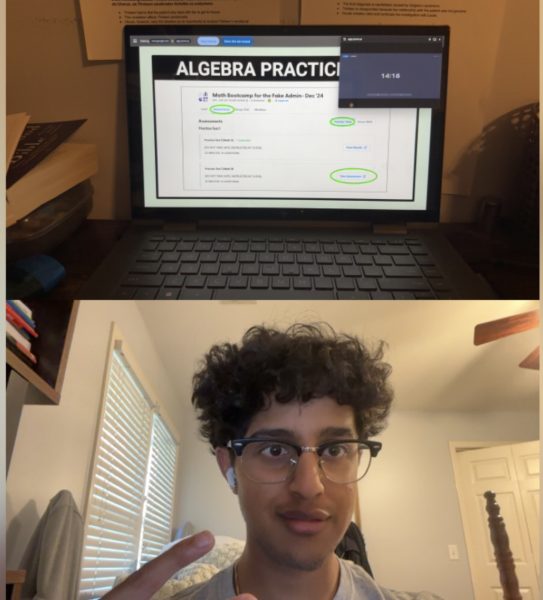Should parents buy alcohol for their children?

As underage drinking continues to be a problem in America, more teens are turning to their parents rather than utilizing a fake I.D. in means of obtaining bottled liquor.
Though strict laws and regulations have been enforced in states all across America, underage consumption of alcohol continues to be a deterring problem that results in deaths from motor vehicle collisions, homicides, over-consumption, suicides, as well as numerous other injuries caused by the dysfunctional state that alcohol induces. According to the National Institute of Health, alcohol tends to be the drug of choice among youth and many teens abuse the power the drink has. When youths drink, they tend to drink intensively. Adolescent consumption continues to be a problem as these youth continue to find new ways to get alcohol into their possession.
Augmenting the issue, parents continue to supply their underage children with alcoholic beverages either at home or in social situations, believing that being ‘too strict’ with their children about adolescent drinking could result in their teens over consuming alcohol once they leave the house; this belief is in fact, a myth. I believe that parents should not supply their underage children with alcohol regardless of the legality of their actions.
Examining statistics, the National Institute of Health on Alcohol Abuse and Alcoholism approximates that 5,000 youth under the age of 21 die as a result of underage drinking. Many of these deaths result from motor vehicle accidents; according to the Federal Trade Commission, “Underage drivers are more susceptible than adults to the alcohol-induced impairment of driving skills.” Because underage drivers are more susceptible to the effects of alcohol, the National Highway Traffic Safety Administration (NHTSA) claims that 40% of drivers involved in a fatal alcohol-impaired crash are young drivers (ages 16-24). In order to keep these death rates low, all states within the U.S. have established the minimum legal drinking age (MLDA) as 21 years old. NHTSA estimates that minimum drinking-age laws have saved 29,834 lives. This being said, parents would be able to potentially save the lives of their children by not supplying them with alcohol.
Many underage alcohol related deaths are results of homicide, suicide, and alcohol-poisoning. The New Haven Register claims that alcohol is linked to more homicides in US than any other substance. The article clearly condemns alcohol, with data, to be the substance that is most linked to lethal violence. According to Destinations to Recovery, suicide is the third leading cause of death among American teenagers, and a common drug of choice to alleviate the pain and depression these children experience is alcohol. The site also explains how underage alcohol consumption can dramatically alter the brain’s chemistry, leaving a person at greater risk of feeling intense sadness or depression. Since many teens drink in large amounts, they are more susceptible to death from alcohol poisoning or over-consumption. Many teens who experience symptoms such as slow or irregular breathing, vomiting, seizures, mental confusion, or hypothermia may be experiencing alcohol poisoning which can lead to death if not treated immediately.
Another danger that is associated with underage consumption is the potential damage that alcohol inflicts on the young brain. Currently, scientists are studying the effects of alcohol on the brain, but the task is proving to be harder than they thought. Pinpointing and detecting subtle changes and cognitive damage to the brain is difficult, especially when working with the developing adolescent brain. Since the human brain continues to develop until a person’s early 20’s, there is an undiscovered potential for alcohol to cause a myriad of problems that can deter the transitional stage from adolescence to adulthood. Though research is limited in regards to human studies, studies where animals were fed alcohol during their critical development stages reveal how alcohol consumption during this period can result in long-lasting impairments.
According to The Surgeon General’s Call to Action To Prevent and Reduce Underage Drinking, underage alcohol consumption is associated with academic failure. In today’s society, academics are valued over almost everything else. It is ironic for parents that are part of a society that so strongly stresses academic achievement and success to deter their child’s opportunities by supplying them with alcoholic beverages.
Studies have also shown that adolescents who drink have elevated liver enzymes, which in most cases indicates liver damage. The liver is more susceptible to alcohol damage at a younger age.
Along with cognitive and liver damage, growth and endocrine defects appear to be evident in adolescents consuming alcohol during the critical developing period called puberty. During puberty, vital hormones are secreted that are necessary for the development of organs, muscles, and bones. Drinking alcohol during this period of rapid growth can upset critical hormone balances that are obligatory to the development of the human body.
In an interview conducted with a Lambert High School student, who wishes to remain anonymous, actual testimony was received on how the transaction takes place and what her and her parents thoughts are on underage consumption of alcohol. When asked what her parents’ reasoning for supplying her with alcohol was, she responded with, “My parents choose and agree to supply me with alcohol because they know that regardless of whether or not they buy it for me that I am going to choose to drink with friends. They would rather be aware of what I am drinking and how much and when and where than me going to other methods in trying to obtain alcohol such as a fake ID or other felonies. Mostly I think it’s a control thing and a compromise for them in letting me drink.” She goes to admit that, “Sometimes they are iffy about buying alcohol for me, but usually in the end they will.” The student also describes to the post that she has to pay for the drinks, while her parents act as the supplier. She also discloses that she “never drinks with [her] parents mainly because they aren’t huge drinkers themselves so I usually take the alcohol they give me and drink at parties with my friends.” Her parents have no control over where and how much she drinks by just handing over the bottle. When asked how often she drinks, she responded with, “I would say I drink almost every weekend. Of course there are some here and there that I choose not to but it is a very regular weekend activity for me.” The student doesn’t necessarily believe that there are any benefits that come from her underage drinking but she does “believe that the risks and connotations to drinking under 21 are too extreme and exaggerated.” Although she believes the risks are overemphasized, she admits that she is “completely aware of the risks of underage alcohol consumption. I think awareness and education is the most important part and then after that what matters most is being safe and responsible. There will always be risks in every situation so I personally don’t think they should be taken to such extremes in regards to alcohol consumption.”
Even with knowledge of alcohol’s dangers, parents continue to justify their actions with myths as to why supplying their children with alcohol is for the better. Some parents believe that providing alcohol to teens at home decreases the risk for continued drinking as teens get older, or that being ‘too strict’ about adolescent drinking during high school will cause teens to drink more when they first leave the home. These and countless other myths fool parents into providing alcohol for their children. An article by drugfree.com does an excellent job of explaining and debunking many of the myths associated with underage drinking.
I firmly believe that parents should not provide alcohol to their underage children because of the physical, mental, and emotional damage that alcohol can cause on the premature body. Parents are essentially harming their children by providing them with a drug that they simply aren’t ready for. By waiting to the legal drinking age – 21 – children can live healthy lives as adolescents and drink when their bodies’ can handle the beverage.
____________________________________________________________________________
The opinions, beliefs and viewpoints expressed by the various authors and contributors on this student-run news site do not necessarily reflect the opinions, beliefs and viewpoints of Lambert High School or Forsyth County Schools.
Your donation will help support The Lambert Post, Lambert High Schools student-run newspaper! Your contribution will allow us to purchase equipment and cover website hosting costs.







